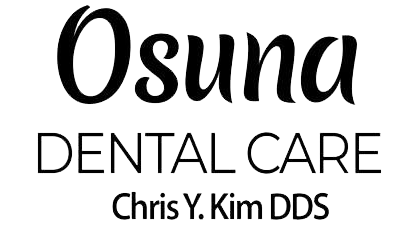Are you looking to achieve a sparkling smile that radiates confidence? Routine and deep teeth cleaning play a crucial role in maintaining optimal oral health. Understanding the differences between these two essential dental procedures can help you make informed decisions about your dental care. Let's dive into the world of routine and deep cleaning to uncover their benefits, dispel myths, and provide expert insights on how to keep your pearly whites shining bright!
Differences between Routine and Deep Teeth Cleaning
Routine teeth cleaning and deep cleaning are both essential aspects of maintaining good oral health. While routine cleaning focuses on removing plaque and tartar buildup from the surface of the teeth, deep cleaning goes a step further by addressing issues below the gum line.
During a routine cleaning, a dental hygienist will use specialized tools to clean your teeth thoroughly, including scaling to remove any hardened plaque and polishing to leave your smile sparkling. On the other hand, deep cleaning involves scaling and root planing to remove stubborn plaque and tartar that has accumulated beneath the gums.
Routine cleanings are typically recommended every six months to prevent dental issues such as cavities and gum disease. Deep cleanings, however, are usually advised when there is evidence of periodontal disease or significant buildup that requires more intensive treatment.
Both types of cleanings play a vital role in preserving your oral health and preventing more serious dental problems down the line. By staying up-to-date with your routine cleanings and following your dentist's recommendations for deep cleanings when necessary, you can enjoy a healthy smile for years to come!
Benefits of Regular Routine Teeth Cleaning
Regular routine teeth cleaning offers numerous benefits beyond just achieving a brighter smile. By visiting your dentist for regular cleanings, you can prevent the buildup of plaque and tartar, which can lead to gum disease and tooth decay. Additionally, routine cleanings help remove surface stains, leaving your teeth looking cleaner and healthier.
Moreover, maintaining good oral hygiene through regular cleanings can also help detect any potential issues early on before they escalate into more serious problems. This proactive approach can save you time and money in the long run by avoiding costly dental treatments.
Furthermore, routine cleanings can contribute to overall better health as well. Research has shown that poor oral health is linked to various systemic diseases, such as heart disease and diabetes. Therefore, investing in regular dental cleanings is not only beneficial for your smile but also for your overall well-being.
When to Consider a Deep Cleaning
If you have been experiencing bleeding gums, persistent bad breath, or noticeable tartar buildup on your teeth, it may be time to consider a deep cleaning. These signs could indicate that plaque and bacteria have accumulated below the gum line, leading to gum disease.
Even if you maintain good oral hygiene habits at home, there are areas in your mouth that are difficult to reach with regular brushing and flossing. Deep cleaning can help remove built-up plaque and tartar in these hard-to-reach places, preventing further damage to your teeth and gums.
It is important to consult with your dentist for a thorough evaluation of your oral health. They will be able to determine if routine cleaning is sufficient or if a deep cleaning is necessary based on the extent of plaque buildup and any signs of gum disease present.
Remember that early detection and treatment of dental issues can prevent more serious problems down the road. So, don't hesitate to schedule an appointment with your dentist if you suspect it may be time for a deep cleaning.
Common Questions about Routine and Deep Cleaning
- Are routine teeth cleanings necessary even if I brush and floss regularly?
Yes, absolutely! Routine cleanings help remove plaque and tartar buildup that brushing alone may not reach. This preventive measure can help maintain oral health and prevent issues down the road.
- How often should I get a routine cleaning?
It is generally recommended to have a routine cleaning every six months. However, your dentist may suggest more frequent cleanings based on your individual needs.
- What is the difference between routine cleaning and deep cleaning?
Routine cleanings focus on removing surface-level plaque and tartar, while deep cleanings target buildup below the gumline. Deep cleanings are typically recommended for patients with gum disease or significant tartar accumulation.
- Does deep cleaning hurt?
Your dentist will use local anesthesia to ensure you are comfortable during a deep cleaning procedure. While you may feel some pressure or sensitivity, it should not be painful.
- Can I avoid needing a deep cleaning by taking good care of my teeth at home?
While proper oral hygiene habits can help prevent the need for deep cleaning, some individuals may still require one due to factors like genetics or medical conditions. Regular dental check-ups can catch any issues early on. Call us to learn more.
Tips for Maintaining Good Oral Hygiene at Home
Maintaining good oral hygiene at home is crucial for keeping your teeth and gums healthy.
- Brushing your teeth at least twice a day with fluoride toothpaste helps remove plaque and prevent cavities. Remember to brush gently in circular motions to avoid damaging your enamel.
- Flossing daily is equally important as it helps remove food particles and plaque from between your teeth where the toothbrush can't reach. Incorporate mouthwash into your routine to kill bacteria and freshen your breath. Choose a mouthwash that contains fluoride for added protection against cavities.
- Eating a balanced diet rich in fruits, vegetables, whole grains, and lean proteins contributes to overall oral health. Limit sugary snacks and beverages that can lead to tooth decay. Stay hydrated by drinking plenty of water throughout the day to wash away bacteria and food particles.
- Don't forget to schedule regular dental check-ups every six months for professional cleanings and exams. Your dentist can detect any issues early on before they escalate into larger problems. By following these simple tips consistently, you'll be well on your way to maintaining optimal oral hygiene at home!
Conclusion
Maintaining good oral hygiene through routine teeth cleanings is essential for preventing dental issues and keeping your smile healthy. Understanding the differences between routine and deep cleaning can help you make informed decisions about your dental care. Remember to schedule regular check-ups with your dentist to ensure optimal oral health and consider a deep cleaning if recommended by your dental professional. By following these guidelines and practicing good oral hygiene habits at home, you can enjoy a beautiful and healthy smile for years to come.
To learn more about the routine and deep cleaning procedures offered by Osuna Dental Care, call us at (505) 884-1989 or visit our dental office located at 5900 Cubero Dr NE suite B, Albuquerque, NM 87109.
More Blog Posts
Office Hours
MONClosed
TUE7:00 am - 4:00 pm
WED7:30 am - 4:00 pm
THU8:00 am - 5:00 pm
FRI7:00 am - 4:00 pm
SAT - SUNClosed






